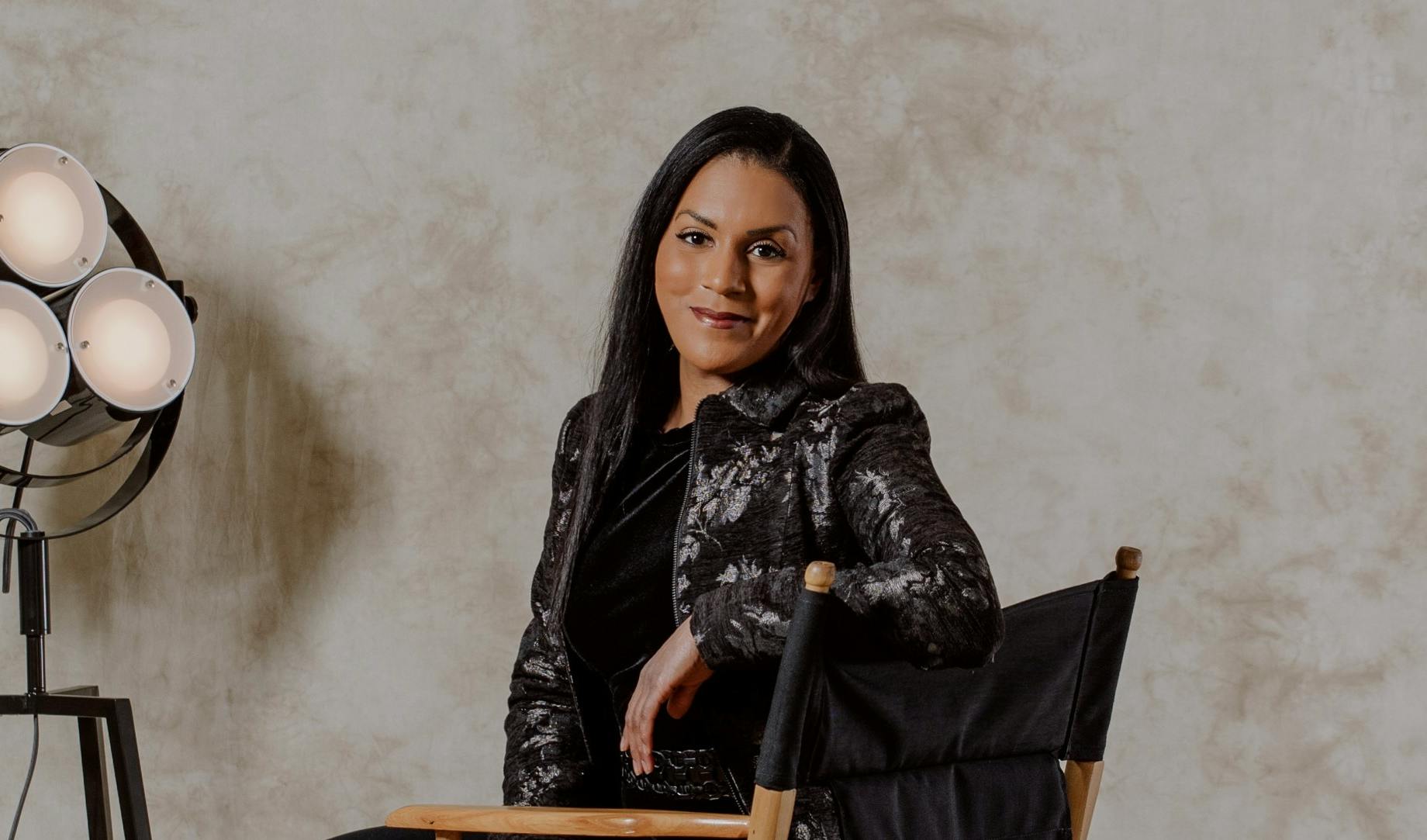
Member Stories: How Diversity Changes Boards
We asked our members to send us specific examples of diversity impacting the boards they're involved with.
There has never been more discussion about diversity in the boardroom. But we found that people wanted to hear specific examples of how diversity had impacted boards – in all sorts of ways. So we asked our community of 40,000 board-level leaders from around the world. Here is a selection of the stories they sent us...
"A natural and obvious addition"
Amongst other things, I chair a board for a design-led theatre company which makes work in the landscape. When we were approached by a potential blind board member we panicked at first. "How is this going to work?" But since she joined, we don't make the easy assumptions we used to. It feels like a natural and obvious addition to the way we think about every bit of what we do.
Gavin Stride
"Issues that were not considered before"
Having a diverse board meant that boards have inputs and perspectives on issues that were not considered before.
My participation in boards has led to better governance through reports and papers being submitted to the board being genuinely equality impact assessed, rather than being tick-boxed, so services and practices are considered properly and that the organisation does not have reputational risk.
Anonymous Director from an ethnic minority background
"Clearly one of the strengths"
I sit on the board of a theatre in London. The membership of the board is as diverse and inclusive as the community it serves in terms of gender, experience, ethnic background and age. In order to ensure relevant and appropriate experiences and skills, our new governance arrangements provide for committees to co-opt new members when we identify a gap in knowledge, or a need for a specific skill-set or experience.
At a time when the theatre is in the middle of a significant building project and a move to a new site – not to mention a crisis of funding for the arts – the diversity of the board and its committees is so clearly one of the strengths of the theatre's leadership.
Nankunda Katangaza
"We should also focus on age"
We are all quite rightly focussed on ensuring that there is a sufficient talent pool of people who may not have started their lives with the same benefits as others, but we should also focus on the age at which we can bring people into the non-executive sphere.
The Board at Hyde likes to look at all aspects of diversity, and age is the aspect that we have added to our consideration over the last two to three years. As with all other aspects, we still seek the best fit for the skills and experience that we are seeking to add, but if we can find that in someone under 40, or at least under 45, we think that we are gaining an additional viewpoint.
Of course we cannot actually ask people’s ages, but when we suggest names to our search consultants as potentials to approach, we can suggest people that we know to be younger.
Alan Collett
"Keeps critical topics on the agenda"
Being able to access different thinking is very powerful to performance. A diverse and inclusive leadership team will also drive a greater openness to feedback and seeking the opinions of others. Diversity at the board level keeps critical topics on the agenda – e.g diversity and inclusion within the company and across employees, which ultimately net better results.
Anonymous Chair of an early stage company
"A joy to work with"
I work in a very male dominated industry and I have generally experienced three types of boards – the male-only ones, the male-dominated with the quota woman NED, and the genuinely diverse ones.
The male-only boards I find painful to deal with and have started to prefer not to work with anymore. A lot of testosterone is usually present and some members think they need to prove they are the silver-back gorilla in the room. Views expressed are very insular – often the silver-back cannot wait to get his view in first – and other members then often reinforce this singular view.
Thus when the wrong decisions are made, it’s near impossible to get the company off that slippery slope, as contrary views (regardless how carefully communicated) are not welcome, or sometimes even forcefully opposed.
Male-dominated boards with a quota female NED are weird beasts – often companies fall into this position when they get listed. As a female it can be a great opportunity to get onto a board, as long as you are willing to live with being "only" a NED and having to chair the lesser-liked Audit Committee.
One has to cope with male banter (which can be great fun), and usually the guys know that they will have to live with you in the long run and come around to the thought of embracing your opinions and views as well. As senior management, the female NED can be a great role model for a trusted mentor. A board with at least one woman present is easier to deal with as a female senior manager and less awkward to attend.
Companies that have genuinely built a diverse board are a joy to work with. This deliberate embracing of diversity usually filters through to the rest of the company and the make-up of these companies is fundamentally different. They are a league apart from all other companies.
Conduct is respectful, canvassing all opinions at the table and reflecting on the pros and cons of every opinion, instead of just trying to ram down own view the rest of the board members' throats. I want to prepare well and bring my absolute A-game to the table at these meetings. And everyone else feels the same. As a result the company gets the best out of every board member and the result is better companies.
Romina Mele-Cornish
"It's just not that hard"
Especially when there is more than one woman and/or person of color in the boardroom, the board's discussion is richer and broader, and we often discover unexplored challenges and opportunities.
On one of my boards, I am one of two women out of 18 board members. Recently we were asked to approve a slate of new committee chairs for one of our regulatory functions – 100% male. I spoke up (I wish it didn’t always have to be me or the other woman!) and asked how these candidates were selected, but there was no good answer.
I suggested that I had benefited from these types of volunteer assignments throughout my career, and that perhaps the organization could make a more concerted effort to ensure women were tapped on the shoulder, trained and mentored for leadership positions. My fellow female board member amplified my point, and then some of the men (mainly the Canadians on the board) chimed in with their support as well.
Just a small example, but if nobody speaks up, the status quo is much easier to maintain. The next time this slate of assignments came around for approval, there were several women on the list. It’s just not that hard.
Elisa Speranza
"More nuanced conversations"
I have been part of an all-male board, been on an executive board that worked under an older all-white board, and am now part of a board with both men and women and one that has different ethnicities on the board.
It’s quite simple (and research backs it up) having a board full of diverse opinions, thoughts and experiences leads to better decision-making. Should we restructure? Should we expand? Should we take out debt to expand growth? All are complex and nuanced questions that really affect a business.
In my experience, the board with diversity on it had more nuanced conversations, asked questions from angles that hadn’t been considered and became less of an echo chamber. It had its finger closer to the pulse. This is what it requires for an organisation to truly grow and thrive.
A board that is more diverse will reach a more nuanced decision because they will have different world and personal experiences. At my company we considered closing down certain offices and there was a marked difference between the insights of men and women – and in some cases different insights were presented from people who came from different cultural and ethnic backgrounds.
Farooq Mohammed
"To be cherished"
I have always been an advocate for 50/50 gender boards – the extent that this has positively framed discussions is to be cherished. It is subjective, but I find women more risk averse and more conscious of the impact on people.
At Mitie we have discussed the recommended acquisition of Interserve. The depth of analysis of risk, the impact on human capital – both as part of the integration and the effect as a result of cost savings through synergies – has been palpable in comparison to similar previous discussions I have held elsewhere in other companies.
Derek Mapp
"A board is a team"
Firstly I think boards need to be obviously diverse. People look at websites and the board is often displayed. I make a judgement about a firm from looking at their leadership. I want to see a mix of ages, at least three women, and two BAME people – the board needs to represent the constituency broadly.
Secondly a board is a team. None of them, alone, has all the necessary skills. Therefore between them they need to cover the range of skills needed and this is the diversity that lies at the heart of a successful board. However, they also need to work as a team – we can't expect "the lawyer" to deal with the legal issues and the "accountant" to take care of the finances. They need to develop and exhibit collective leadership. This requires give and take, listening, learning, etc.
Diversity of view and opinion is important too. Groupthink is bad, and including people on boards who are from the customer group, or who are unafraid to challenge makes the board much stronger. Also at a board, people should be meeting people who are not "like me" in order to learn, develop and grow. Being on a board should be challenging and interesting, not just applying my existing knowledge to a similar situation.
Kate Davies
"Go beyond box-ticking"
As this business has been successfully run for several years by a well-qualified and experienced Black Managing Director, we have been able to address topical issues relating to the BLM movement and any wider diversity and inclusion concerns of our internal and external stakeholders.
This has also enabled our response to come from a position of understanding the complexities and sensitivities around these issues. It is also very clear that having diversity within the senior management team, that this business is endeavouring to go beyond a 'box ticking' exercise of only achieving diversity at lower levels of the organisation.
Gene Joyner
"Get away from groupthink"
In my view, the most important diversity at board level is diversity of thought. Of course, this is significantly helped by more diversity amongst board members in other ways, but the really important thing is to get away from groupthink and to focus on the effect of diversity on outputs.
A current example for me is my membership of a Scottish NHS Board. Several people have said to me 'What do you know about medicine?' and that misses the point. We need people from disparate backgrounds, just like a football team needs different types of players for each position. The NHS is quite capable of putting out a team of 11 goalkeepers.
Another unrelated example of the need for NED diversity is eloquently argued in Philip Augar's book about Barclays (The Bank that Lived a Little) during the financial crash in 2008. He describes the NEDs as failing in their duty and attributes this to them being from the same background, belonging to the same clubs etc.
Peter Drury
"The frustration of being rejected"
Very simply, the concentration on diversity of skin colour, gender and disability rather than attention to diversity of thought has meant that it is virtually impossible for me as a white man, public school and Oxford educated and with a banking background to be considered for any board role, many of which I believe (with my experience) I am hugely qualified for. I understand the issues, but that does not necessarily reduce the frustration of wanting to help, being available to help and being constantly rejected.
Anonymous
"We do have to be careful"
I have experienced both positive and negative impacts on board performance as a result of diversity. The positive impact is having an inclusive and diverse board with a range of experiences irrespective of age, gender or colour.
However caution should be exercised so that diversity and inclusivity is not seen as a tick-box exercise, leading to decisions where the talent pool is being diluted. Merit should be the overriding factor and objectivity the lens utilised for decision making in board appointments. When all is said and done, to be the best you need the best.
I remember early in my career, we had won a contract to deliver professional services to a bank. On the board, they had a chap who was a Sikh with a turban, of East African origin. So I was approached by the head of HR who came up to me and said, “We just won this huge client, it'd be great if we had someone on the team who represented diversity – you’re Sikh, why don't you grow your hair and wear a turban?” I was absolutely gobsmacked, but it wasn't uncommon to get those types of comments. I suggested that they recruit Sikhs with turbans, which to their credit they did.
Throughout my career, I have faced discrimination and been overlooked for promotions, and this was very rarely down to performance. It was often down to not fitting in with the clique, or someone having a perception of you. Colour was a barrier to being in the clique. However, not once in my career did I ever play the race card. It made me more determined, to be better and work even harder but also to push for objective quantifiable KPIs in performance appraisals so there could be no disputing of facts at the end-of-year appraisal
Over the last five years or so, I've seen quite a significant change in the corporate world. It's a good thing that the lack of diversity debate is being had, and there's an acknowledgement and recognition that these issues need to be addressed.
But there are things which I openly disagree with, and I've had some interesting debates with leadership and management, because they look at me and think, why is he saying this? And I can actually say it, whereas some of my colleagues are thinking it, but they're not saying it.
Sometimes I’ve seen companies push people who were less talented than other individuals in their peer group purely because they were trying to address discrimination in the past. And that has started to impact progression in the workplace and create some tension. It’s a complex landscape, and we do have to be careful. The goal of ensuring top talent is represented at board level should, in my view, be the over-riding factor – it should be the best person for the role drawing on the richness of diversity.
Rashpal Hullait
Nurole is the global platform changing the way organisations bring the best people on to their boards. Find out how it works for talented people looking for the best board level positions, and for organisations looking to hire the best board level talent.






